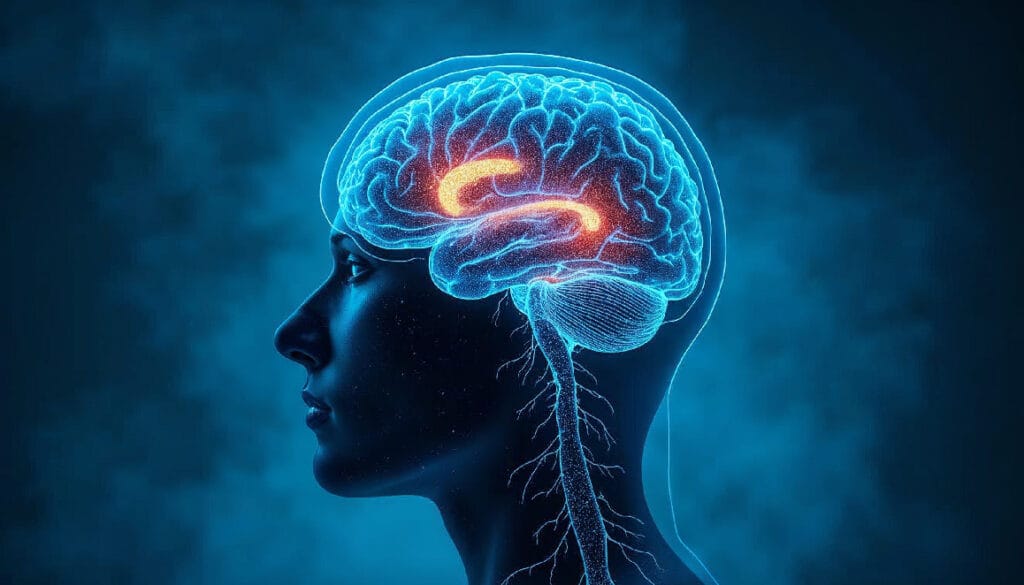The Ripple Effect of Smoking on Your Personality and Self-Confidence


Written By: Aman Doda
Last Updated: 04/12/2025


- How smoking impacts your personality, confidence, and self-esteem.
- The psychological and emotional toll of nicotine dependence.
- The visible effects of smoking on your appearance and how they influence confidence.
- Actionable steps to regain your self-confidence after quitting smoking.
- A powerful testimonial from Mehul, who transformed his life and confidence after quitting.
- 01: Introduction: Smoking and Its Hidden Effects on Confidence
- 02: How Smoking Influences Your Personality
- 03: The Psychology of Smoking: How Nicotine Hijacks Self-Worth
- 04: The Visible Effects: How Smoking Changes Your Appearance
- 05: Emotional Dependency: Why Smokers Feel Trapped
- 06: The Social Perception of Smokers: How It Impacts Your Confidence
- 07: Actionable Steps to Rebuild Confidence After Quitting Smoking
- 08: Watch This: Understanding the Root Cause of Smoking
- 09: Mehul’s Testimonial: Over 1 Year Smoke-Free and Thriving
- 10: FAQs: Smoking, Personality, and Confidence
- 11: Conclusion: Reclaiming Your True Self
- 12: Disclaimer
Introduction: Smoking and Its Hidden Effects on Confidence
When people think about smoking, they often focus on its physical effects—lung damage, heart disease, or cancer. But what about the less obvious impacts? Smoking doesn’t just harm your body; it subtly erodes your confidence, self-esteem, and personality over time.
Have you ever felt like smoking was holding you back from being the best version of yourself? That’s because it is. Smoking affects the way you see yourself and how others perceive you, leaving a trail of self-doubt, dependency, and emotional vulnerability in its wake.
This blog isn’t just about how smoking harms your health—it’s about how it quietly steals your identity and confidence. By the end, you’ll understand the full ripple effect of smoking on your personality and, more importantly, how quitting can help you rediscover the real you.
How Smoking Influences Your Personality
Smoking doesn’t just damage your body—it rewires your mind and reshapes your personality over time.
Here’s How Smoking Affects Personality:
- Reduced Self-Control: Nicotine cravings make smokers feel like they’re not in control of their actions, leading to frustration and a diminished sense of self-discipline.
- Irritability and Mood Swings: Smokers often experience irritability, especially when nicotine levels drop, affecting how they interact with others.
- Loss of Authenticity: Many smokers rely on cigarettes to handle stress or emotions, creating a dependency that masks their true personality.
- Increased Social Anxiety: Smoking may initially feel like a social activity, but over time, it can lead to self-isolation due to the stigma associated with the habit.
💬 Imagine a painter who uses smoke to “fix” every flaw in their painting. Over time, the smoke obscures the canvas entirely, hiding the beauty beneath.
👉 Learn more about how smoking impacts emotional health in our blog: The Emotional Damage Smoking Causes: Stress, Anxiety, and Self-Sabotage.


💡 Think of your immune system as a security team. Smoking sends that team on a lunch break, leaving your body unprotected from intruders.
The Psychology of Smoking: How Nicotine Hijacks Self-Worth
Nicotine isn’t just addictive—it manipulates your brain’s reward system, making you believe that smoking gives you relief, confidence, or control. But the truth is, smoking gradually erodes your mental health and self-worth.
The Psychological Effects of Smoking:
- Dopamine Deception: Smoking releases dopamine temporarily, making you feel good for a short while. Over time, your brain relies on nicotine for this boost, reducing your ability to feel naturally happy or confident.
- Emotional Crutches: Smokers often use cigarettes to manage stress, sadness, or boredom, but this creates emotional dependency.
- Self-Sabotage: Every time you light up, you’re reinforcing a cycle of dependency, which can leave you feeling powerless and stuck.
💬 Fact: Studies show that people who quit smoking experience a significant boost in self-esteem and emotional resilience within months of quitting.


The Visible Effects: How Smoking Changes Your Appearance
Your appearance is often a reflection of your confidence. Smoking, unfortunately, has a visible toll on how you look—and these changes can deeply impact how you feel about yourself.
How Smoking Affects Appearance:
- Premature Aging: Smoking reduces collagen, causing wrinkles, sagging skin, and an aged appearance.
- Yellow Teeth and Bad Breath: Smoking stains your teeth and causes persistent bad breath, which can make you self-conscious in social interactions.
- Dull Skin and Hair: Reduced blood flow and oxygen to the skin result in a dull complexion and brittle hair.
💬 Think About This: Every puff of a cigarette is like taking a step back from the vibrant, confident person you could be.


Emotional Dependency: Why Smokers Feel Trapped
Smoking creates a powerful emotional dependency that makes you feel like you can’t cope without cigarettes. This dependency damages your confidence and keeps you stuck in a cycle of self-doubt.
Key Emotional Effects of Smoking Dependency:
- Feeling anxious or incomplete without cigarettes.
- Using smoking as a way to avoid confronting deeper emotions.
- Feeling guilty or ashamed about the habit, which further erodes confidence.
Change starts with clarity.If you’ve tried everything and nothing worked—this ebook is for you. Download “Break Free” now and learn what’s actually keeping you stuck.


The Social Perception of Smokers: How It Impacts Your Confidence
Have you ever felt judged or out of place because of your smoking habit? Whether it’s the smell of smoke lingering on your clothes, yellowed teeth, or stepping outside for a cigarette break at social events, smoking often creates a barrier between smokers and non-smokers.
How Smoking Affects Social Perception and Confidence:
- Judgment from Others: Society has become increasingly aware of the health risks of smoking, leading many people to view smokers in a negative light. This judgment can leave smokers feeling embarrassed or ostracized.
- Feeling Left Out: At social gatherings, stepping outside to smoke can make you feel like you’re missing out on important conversations or moments.
- Workplace Perception: Smokers are often perceived as less disciplined or less health-conscious, which can impact your career and relationships with colleagues.
- Impact on Close Relationships: Loved ones, especially non-smoking partners or children, may express frustration or concern about your habit, creating feelings of guilt and tension.
💬 Think About This: Smoking doesn’t just isolate you physically (like stepping outside to smoke)—it can isolate you emotionally, making you feel like you don’t belong.
Why This Matters:
Confidence isn’t just about how you see yourself—it’s also about how you feel you’re seen by others. Smoking can tarnish this perception, making you feel less worthy or capable.
A Real-Life Reflection:
Smokers often report feeling self-conscious when someone comments on the smell of smoke on their clothes or breath. These small moments, repeated over time, chip away at their confidence and create a sense of shame.
👉 If social perception is one of your concerns, read our blog How Smoking Harms Your Career and Productivity to understand how it can affect your professional life, too.


Actionable Steps to Rebuild Confidence After Quitting Smoking
Quitting smoking isn’t just about improving your health—it’s about regaining control, rebuilding confidence, and reconnecting with your authentic self. The journey to quitting smoking is also a journey to rediscovering your self-worth, your strength, and the best version of yourself.
Here are practical steps to help rebuild your confidence after quitting smoking:
1. Celebrate Small Wins
Every smoke-free day is a victory. Start by acknowledging the progress you’re making, no matter how small it seems. Each step forward is proof of your commitment and strength.
💡 Example: Reward yourself with something meaningful for every week or month you remain smoke-free—like treating yourself to a book, a meal, or even setting aside the money you’ve saved from not smoking.
2. Replace the Habit with a Confidence-Boosting Routine
When you quit smoking, you create a void where your addiction used to be. Filling that void with positive, confidence-building habits is key.
- Exercise: Physical activity releases endorphins, the body’s natural mood enhancers. It helps you feel more energetic, reduces stress, and improves your self-image.
- Mindfulness Practices: Activities like meditation or journaling can help you stay grounded and focus on your personal growth.
- Self-Care: Focus on grooming, skincare, or oral health—taking care of your appearance will make you feel more confident in social and professional situations.
3. Set New Goals and Achieve Them
Smoking often leaves you feeling stuck or stagnant. Replacing this cycle with a sense of purpose is transformative.
- Personal Goals: Set fitness goals like running a 5K, trying yoga, or simply walking every day to build stamina.
- Professional Goals: Use the newfound focus and clarity you gain from quitting to improve your career—whether it’s asking for a promotion, learning a new skill, or improving your productivity.
4. Address Emotional Triggers
Many people smoke to manage emotions like stress, sadness, or boredom. Quitting smoking gives you the opportunity to develop healthier coping mechanisms.
- Learn to recognize your triggers and redirect those emotions into constructive outlets, like creative hobbies, deep breathing, or talking to a friend.
5. Surround Yourself with a Positive Support System
The people around you play a big role in how you view yourself. Surround yourself with supportive, encouraging individuals who celebrate your decision to quit.
💬 Pro Tip: Share your milestones with family and friends or join a supportive community like our Private Facebook Group, where others on the same journey can inspire and motivate you.
6. Practice Self-Compassion
Quitting smoking can be challenging, and there may be moments where you feel frustrated or slip up. Instead of being harsh on yourself, practice self-compassion. Remind yourself that progress is better than perfection.
💬 Quote to Reflect On:
The fact that you’re here, reading this, shows your strength and willingness to grow. That’s something to be proud of. 🌟


Mehul’s Journey to a Smoke-Free Life (1+ Year)
Watch This: Mehul’s Journey to a Smoke-Free Life (1+ Year Quit!)
Mehul’s story is truly inspiring. After more than a decade of smoking, he felt trapped and unsure if he could ever quit. With the help of QSFS, he achieved something incredible—he’s now over a year smoke-free. His words remind us that quitting smoking isn’t just about health; it’s about reclaiming your life, your relationships, and your dreams.
FAQs: The Ripple Effect of Smoking on Your Personality and Self-Confidence
Smoking lowers self-confidence in multiple ways. It can make you feel dependent, damage your physical appearance (like stained teeth and premature wrinkles), and create a sense of shame or guilt about your habit. Quitting smoking helps you feel more in control of your life, improves your appearance, and enhances your self-esteem.
Absolutely. Quitting smoking is a powerful way to boost your self-esteem. It helps you take back control over your life and body, eliminates the dependency on nicotine, and allows you to feel healthier and more accomplished every day you remain smoke-free.
Many smokers feel judged because of the stigma surrounding smoking. Society often views smoking as a harmful and unnecessary habit, which can lead smokers to feel ashamed or criticized. This judgment can hurt self-confidence, making it even harder to quit.
Many people start to notice a boost in confidence within the first few weeks of quitting smoking. As your body begins to heal and you feel more in control, your self-image naturally improves. Physical changes like better skin, fresher breath, and more energy also contribute to this positive shift.
Yes. While smoking may feel like it provides temporary relief, it actually increases anxiety and stress over time by disrupting your brain’s natural stress response. Nicotine creates a cycle of dependency, where you feel stressed when you don’t smoke and temporarily relieved when you do.
Absolutely. Replacing smoking with positive habits like exercise, meditation, or hobbies can rebuild your confidence by improving your health, giving you a sense of accomplishment, and creating a new identity that aligns with your best self.
QSFS isn’t just about quitting smoking—it’s about helping you regain control over your life. By addressing the root emotional and psychological triggers of smoking, QSFS empowers you to break free from nicotine, rebuild confidence, and create a new, smoke-free identity.
Yes! While the journey to rebuilding self-esteem takes time, quitting smoking is a crucial first step. As you regain control over your health and lifestyle, your confidence will naturally rebuild, and you’ll start feeling more positive about yourself.
Stay focused on your “why”—whether it’s improving your health, being a better role model, or regaining your confidence. Surround yourself with supportive people, track your progress, and celebrate every milestone along the way. Programs like QSFS provide structured guidance to keep you on track and motivated.
Conclusion: Take Back Control of Your Personality and Confidence
Smoking doesn’t just harm your physical health—it subtly and deeply affects your personality, self-confidence, and the way you show up in life. It ties you to a dependency that limits your potential, creates feelings of shame or guilt, and prevents you from being the best version of yourself.
But here’s the empowering truth: you can change this story.
Every step you take toward quitting smoking is a step toward regaining control, rebuilding confidence, and transforming your life. Imagine waking up every morning feeling healthier, stronger, and more aligned with who you want to be. Picture the energy, pride, and freedom that come with breaking free from nicotine.
The journey may not be easy, but it’s worth every effort. And you don’t have to do it alone. With the right tools, support, and mindset, you can take back control of your personality and confidence—one smoke-free day at a time.
Watch This : Understanding the root casue of smoking
Most smokers believe that their inability to quit stems from a lack of willpower. But the truth is, smoking isn’t just a habit—it’s an addiction deeply tied to emotional, psychological, and behavioral triggers. In my latest video, I break down the real reason why so many people struggle to quit and how understanding the root cause is the first step to breaking free.
👉 Ready to reclaim your confidence? Join our FREE Masterclass and discover the proven steps to quit smoking and transform your life.
Need more support? Join our Private Facebook Group for daily tips, inspiration, and a community of like-minded individuals.
Disclaimer
The information provided in this blog is for educational and informational purposes only. It is not a substitute for professional medical advice, diagnosis, or treatment. Always consult a qualified healthcare provider before making decisions about your health or attempting to quit smoking through any method or program. Results mentioned in this blog may vary based on individual circumstances. Testimonials shared are personal experiences and are not guarantees of specific outcomes. The journey to quitting nicotine and rebuilding confidence is personal and may require expert guidance tailored to your needs.
Share via:
